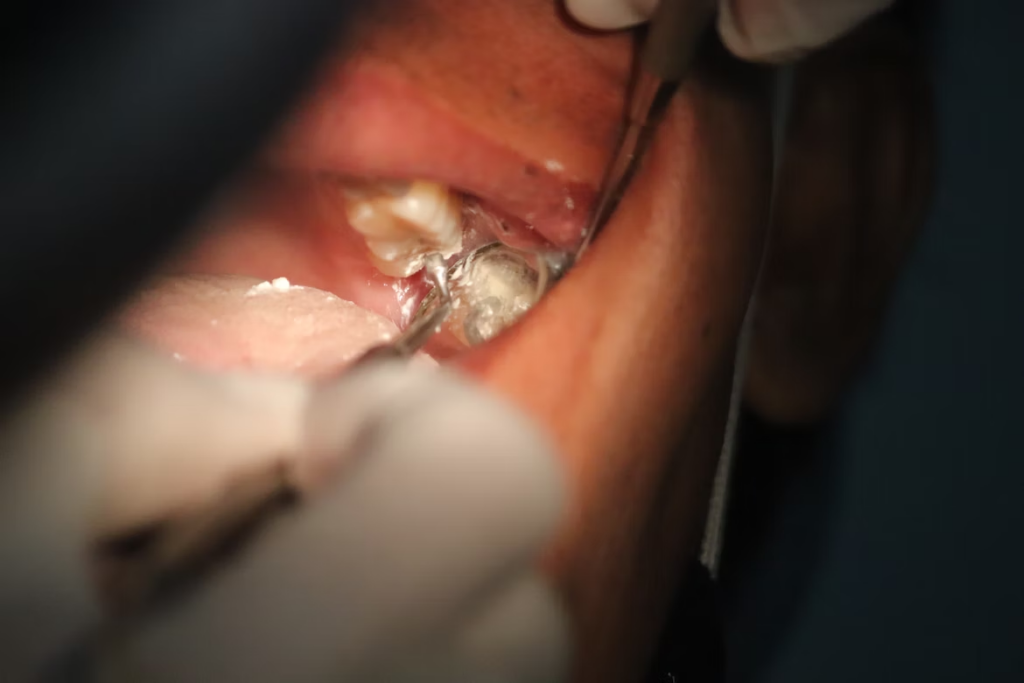Appointment


Prevention is always preferable to treatment when it comes to tooth health. Cavities are one of the most prevalent dental issues that patients confront. But have you ever wondered how long a cavity takes to form?
Cavities are created by the deterioration of the tooth's enamel and, if left untreated, may cause severe pain, sensitivity, and even tooth loss. The rate at which cavities occur is affected by a number of variables, including nutrition, dental hygiene, and heredity.
There are, nevertheless, some broad rules that might assist you in understanding the chronology of cavity creation.
In this post, we'll look at the many phases of cavity creation and how to avoid them in the first place. Keep reading if you're intrigued by cavities and want to keep your teeth healthy and strong!
Dental health is an essential aspect of overall health. It refers to the state of your teeth, gums, and mouth. Proper dental health is essential to maintaining good oral hygiene and preventing dental problems such as cavities, gum disease, and tooth loss.
Maintaining good dental health requires regular dental checkups, proper oral hygiene, a healthy diet, and avoiding bad habits such as smoking.
A cavity is a hole that forms in the tooth as a result of tooth decay. Tooth decay occurs when bacteria in the mouth produce acid that erodes the tooth's enamel.
If left untreated, the decay can progress into the tooth's softer dentin, eventually reaching the pulp, which contains nerves and blood vessels. Once the pulp is infected, it can cause severe pain and may require a root canal or extraction.
Cavity formation is a gradual process that occurs in several stages. Understanding these stages can help you prevent cavities and identify them early. The stages of cavity formation are:
Plaque is a sticky film of bacteria that forms on the teeth. When you eat sugary or starchy foods, the bacteria in plaque produce acid that can erode the tooth's enamel.
If the plaque is not removed through brushing and flossing, it can harden into tartar, which can only be removed by a dentist.
Enamel demineralization occurs when the acid produced by plaque erodes the tooth's enamel. At this stage, the tooth may appear chalky or white, and you may experience sensitivity to hot, cold, or sweet foods and drinks.
If enamel demineralization is left untreated, the decay can progress into the tooth's softer dentin. At this stage, you may experience more severe tooth sensitivity and pain.
If the decay reaches the pulp, it can cause severe toothache, and you may notice pus and swelling around the tooth. At this stage, you may require a root canal or extraction.

Several factors can influence the speed at which cavities form. These include:
Poor oral hygiene can lead to the buildup of plaque and tartar, increasing the risk of cavities. Brushing at least twice a day, flossing daily, and using mouthwash can help prevent cavities.
A diet high in sugar and starch can increase the risk of cavities. Sugary and acidic foods and drinks can also erode the tooth's enamel.
Eating a healthy diet that is low in sugar and starch and high in calcium and vitamin D can help keep your teeth healthy.
Fluoride is a mineral that can strengthen the tooth's enamel and prevent cavities. Using fluoride toothpaste and receiving fluoride treatments from your dentist can help prevent cavities.
Some people may be more prone to cavities due to genetics or underlying health conditions such as dry mouth or acid reflux.
If you have a higher risk of cavities, your dentist may recommend more frequent checkups and preventive treatments.
Preventing cavities is essential to maintaining good dental health. Measures to prevent cavity formation include:
If you do develop a cavity, early detection, and treatment are essential to prevent further damage. Treatment options for cavities include:
If the decay has reached the pulp, you may require a root canal or extraction. A root canal involves removing the infected pulp and filling the tooth. If the tooth cannot be saved, it may need to be extracted.
If the cavity is caught early, it can be treated with a filling. A filling involves removing the decay and filling the hole with a composite material. If the cavity is large or in a visible area, a crown may be necessary to restore the tooth's shape and function.
At Al Care Dental, we are committed to helping you maintain good dental health and prevent cavities. Our experienced team offers a range of preventive and restorative dental services, including checkups, cleanings, fillings, and crowns.
We use the latest technology and techniques to ensure your treatment is comfortable, effective, and long-lasting.
Contact us today to schedule an appointment and take the first step towards a healthier smile.

Cavities are a common dental problem that can lead to severe tooth pain and even tooth loss if left untreated. Understanding the stages of cavity formation and the factors that influence their speed can help you prevent cavities and identify them early.
Maintaining good oral hygiene, eating a healthy diet, and visiting the dentist regularly are all essential to preventing cavities and maintaining good dental health.
If you do develop a cavity, early detection, and treatment are essential to prevent further damage and preserve your natural teeth.
With the right preventive and restorative care, you can enjoy a healthy, beautiful smile for years to come.
We’re glad you chose our practice! Please take some time to learn about how to prepare for your first appointment.
Find Out more